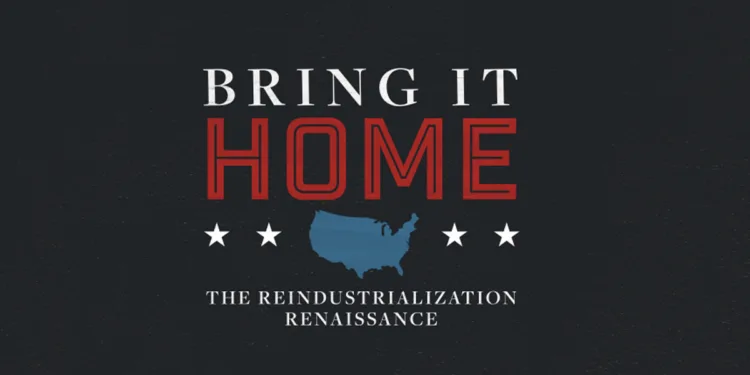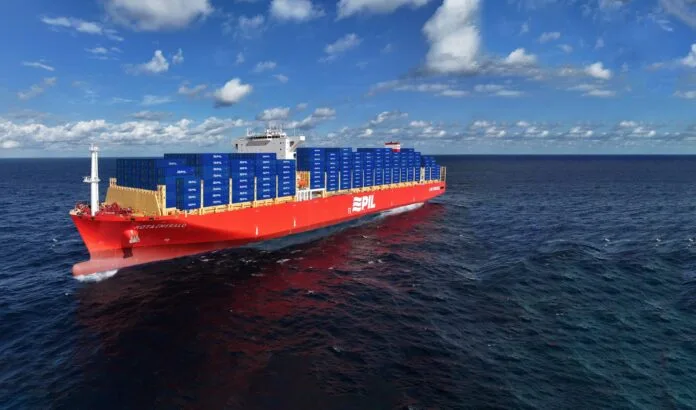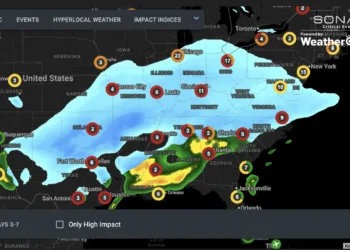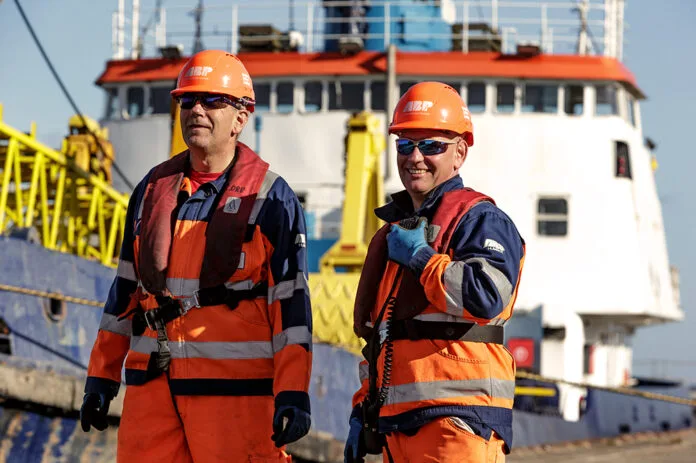In the late 19th century, the United States was in the midst of rapid industrialization and economic transformation. As factories and railroads expanded across the country, a debate raged about how best to protect and nurture America’s burgeoning industries. Into this environment stepped William McKinley, an Ohio congressman (and future president) who would lend his name to one of the most significant and controversial tariff acts in U.S. history.
This is JP Hampstead, co-host of the Bring It Home podcast with Craig Fuller. Welcome to the 13th edition of our newsletter, where we dig into 19th century trade policy, protectionism and Donald Trump’s favorite U.S. president.
The McKinley Tariff of 1890 raised import duties to nearly 50% on average, up from around 38% previously. As the House Ways and Means Committee chairman, McKinley argued that high tariffs were necessary to shield American manufacturers and workers from foreign competition. “We lead all nations in agriculture; we lead all nations in mining; we lead all nations in manufacturing,” McKinley declared. “These are the trophies which we bring after twenty-nine years of a protective tariff.”

President William McKinley, 1900. (Photo: photographer unknown, Library of Congress)
McKinley’s tariff was a product of its time, reflecting the Republican Party’s embrace of protectionism and “American economic nationalism.” The late 19th century saw the U.S. shifting from a predominantly agricultural exporter to an industrial powerhouse. As one economic historian notes, “between 1890 and 1910, the United States dramatically shifted from a trade pattern of primarily exporting agricultural goods and importing manufactures to becoming a net exporter of industrial products.” The McKinley Tariff was enacted at the cusp of this transformation.
However, the tariff’s immediate effects were mixed. While it did spur growth in some protected industries like tinplate manufacturing, it also raised prices for consumers and sparked a political backlash. In the 1890 midterm elections, voters punished Republicans, handing control of the House to Democrats. The tariff became a major campaign issue, with opponents arguing it benefited big business at the expense of ordinary Americans.
More than a century later, we find curious parallels in the trade policies of President Donald Trump. Like McKinley, Trump positioned himself as a champion of American industry and workers, decrying “bad” trade deals and advocating for higher tariffs. “I am a Tariff Man,” Trump famously tweeted in 2018. “When people or countries come in to raid the great wealth of our Nation, I want them to pay for the privilege of doing so.”
Trump’s admiration for McKinley is well documented. In his second inaugural address, he praised McKinley, saying, “President McKinley made our country very rich through tariffs and through talent.” Trump has repeatedly cited McKinley’s policies as a model for his own approach to trade.
But how applicable are 19th century trade policies to the modern global economy? The U.S. economy of the 1890s was still emerging as an industrial power, while today it is a mature, service-oriented economy deeply integrated into global supply chains. The international trade landscape is vastly more complex, governed by institutions like the World Trade Organization that didn’t exist in McKinley’s time.
Nevertheless, some economists and policymakers argue that strategic use of tariffs and other trade barriers could help address current challenges like the decline of American manufacturing, the rise of China as an economic competitor and the need to bolster critical supply chains.
In other words, there may be parallels between the proto-industrial economy of the 1880s and the post-industrial economy of the 2020s. We’re perhaps too accustomed to thinking of history — and economic development — as a linear process that inevitably leads from one stage to another, from agricultural to industrial to service-oriented, so “reindustrialization” feels like traveling backward in time. But there is no law of history that demands the United States stop making stuff; the labor cost arbitrage among our more capable trading partners that fueled outsourcing and the loss of manufacturing in the first place is now coming to an end.
Critics, however, warn that high tariffs could backfire, raising costs for consumers and businesses while potentially sparking retaliatory measures from trading partners. As Douglas Irwin, an economics professor at Dartmouth College, notes, “It’s not like [Trump is] painting a completely inaccurate picture. But I think he tends to exaggerate the role of the tariff as generating all this prosperity.”
Most economic historians attribute America’s late 19th/early 20th century growth to factors beyond tariffs, including technological innovation, abundant natural resources and a rapidly growing domestic market. The average annual GDP growth rate from the 1870s to 1913 was around 4%, outpacing other major economies of the time.
Trump’s embrace of protectionism, while controversial, has shifted the debate on trade policy in the United States. Even the Biden administration, while rejecting Trump’s confrontational rhetoric, maintained his tariffs and emphasized the need to strengthen domestic manufacturing.
Some see this as the first step toward a more comprehensive industrial policy – a set of coordinated government actions to promote specific sectors or technologies. Proponents argue that such an approach is necessary to compete with state-backed industries in countries like China and to address challenges like climate change.
It’s clear that the fundamental tensions the McKinley Tariff represented – between protectionism and free trade, between different sectors of the economy, between short-term politics and long-term economic strategy – continue to shape American trade policy. While the specific circumstances have changed dramatically, the core questions about how best to promote national prosperity in a global economy remain as relevant as ever.
Quotable
“A short time from now, we are going to be changing the name of the Gulf of Mexico to the Gulf of America — (applause) — and we will restore the name of a great president, William McKinley, to Mount McKinley, where it should be and where it belongs. (Applause.)
“President McKinley made our country very rich through tariffs and through talent — he was a natural businessman — and gave Teddy Roosevelt the money for many of the great things he did, including the Panama Canal, which has foolishly been given to the country of Panama after the United Spates — the United States — I mean, think of this — spent more money than ever spent on a project before and lost 38,000 lives in the building of the Panama Canal.”
– President Trump in his second inaugural address, Jan. 20, 2025
Infographic

(U.S. tariffs are near global and historic lows; tariffs are almost always and everywhere higher than they are in the U.S. (2019 data). Map: Fortune)
News from around the web
ArcelorMittal plans $1.2 billion Alabama mill to produce electrical steel
Alabama Gov. Kay Ivey has announced that ArcelorMittal, one of the world’s leading steel producers, will invest $1.2 billion to build an advanced manufacturing facility in Mobile County to produce a specialty electrical steel that’s used in electric vehicle motors and other applications.
The project will create more than 200 jobs at ArcelorMittal Calvert, which will be capable of producing up to 150,000 metric tons of non-grain-oriented electrical steel annually, depending on the product mix.
Digantara To Invest Up To $15M For Building Spacecraft Manufacturing Unit In US
Expanding its footprint in the U.S., Bengaluru, India-based spacetech startup Digantara is looking to invest $10 million-$15 million over the next six to eight months to build a dedicated spacecraft manufacturing and space optics production center in Colorado.
The state has pledged close to $1 million in operational incentives to accelerate Digantara’s expansion.
Advanced Magnet Manufacturing Begins in the United States
In mid-January, a top United States materials company announced that it had started to manufacture rare earth magnets. It was important news — there are no large U.S. makers of the neodymium magnets that underpin huge and vitally important commercial and defense industries, including electric vehicles. But it created barely a ripple during a particularly loud and stormy time in U.S. trade relations.
Most recent episode
The post Revisiting the McKinley tariff appeared first on FreightWaves.


















